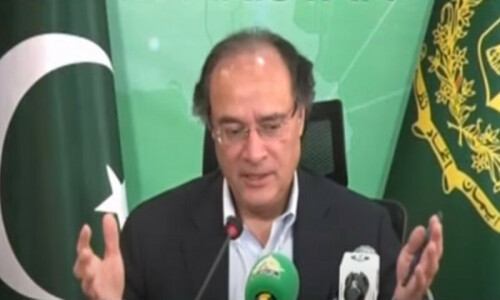IN the complex tapestry of international relations, the role of a nation’s Foreign Office (FO) is pivotal. Pakistan, once renowned for its diplomatic prowess, now confronts a critical juncture where the FO’s role in foreign policy formation is alarmingly diminished. The recent emphasis by caretaker PM Anwaar-ul-Haq Kakar and FM Jalil Abbas Jilani on revitalising the FO’s central role is a timely and much-needed call to action. Historically, Pakistan’s diplomats were held in high regard, shaping the nation’s foreign policy with astuteness and foresight. However, this golden era has been eclipsed by a multiplicity of actors influencing foreign policy. Significant influence is exerted, particularly in relationships with key countries like India, Afghanistan, and Saudi Arabia. While the involvement of the country’s more powerful institutions is understandable given the geopolitical landscape, it has led to the overshadowing of diplomatic and economic concerns. Other entities — such as our intelligence services and economic wizards — provide valuable insight, but must desist from direct involvement in the shaping of foreign policy. Furthermore, the influence of financial institutions, especially in the wake of the IMF agreement, has also grown, further fragmenting the policymaking process. Each actor brings its unique perspective, making it challenging to forge a uniform policy that balances all concerns. The fallout of this fragmented approach is evident. The FO’s role has been whittled down to multilateral engagements and diaspora issues.
To regain its lost glory, Pakistan must reaffirm the FO’s primary role in foreign policy formulation. This does not negate the value of contributions from other sectors, but rather emphasises the necessity for these to be in consultation with the FO. The FO must be the crucible where various perspectives are blended to ensure Pakistan’s foreign policy is balanced. The FO also needs to attract the brightest minds, as it did in the past when it was the first choice for the nation’s top graduates. This calls for a competence-based approach in the selection and appointment of diplomats, ensuring that political or institutional allegiance does not overshadow professional excellence. This isn’t just about restoring a past legacy; it is about securing a future where Pakistan’s voice is heard and respected on the world stage. Let’s not risk a scenario where Pakistan’s diplomatic institution may no longer be taken seriously by other nations. Our diplomats should not just be participants but shapers of the global dialogue.
Published in Dawn, January 7th, 2024












































Dear visitor, the comments section is undergoing an overhaul and will return soon.